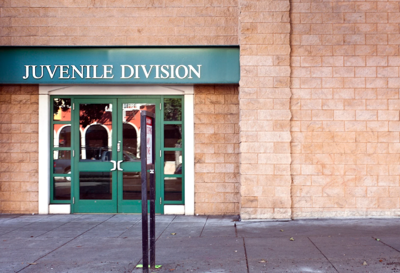
ST. LOUIS — A federal lawsuit filed in the Western District of Missouri is raising critical legal questions about whether the Missouri Department of Youth Services must comply with the state’s anti-discrimination laws, sparking support from the MacArthur Justice Center, which filed an amicus brief urging the court to allow the case to proceed.
At the heart of the lawsuit is the assertion that DYS facilities should be considered places of public accommodation under the Missouri Human Rights Act, which would enable children in DYS custody to pursue legal claims when facing discrimination based on disability or other protected characteristics.
The case is centered on whether the MHRA’s protections — which are established for children in public schools — also apply to youth once they are placed in DYS custody.
According to Susie Lake, an attorney with the MacArthur Justice Center’s Missouri office and an expert in juvenile and education justice issues, the implications of this case could set far-reaching precedent not only in Missouri, but nationally.
“This case is about whether a Missouri anti-discrimination statute applies to children once they’ve entered DYS custody,” Lake said in an interview with St. Louis Record. “This is a very dangerous argument because granting the motion to dismiss would mean that children in DYS custody could not even plead a claim under the Missouri Human Rights Act in future lawsuits.”
DYS has filed a motion to dismiss the case, asserting that its facilities are more akin to juvenile detention centers than schools and therefore not subject to the MHRA.
If the court agrees, Lake said it could close the door on future claims without the court ever considering the merits of the issue. She stressed that this would deny vulnerable youth the opportunity to even argue for protections under state civil rights law.
“The MHRA prevents discrimination in places of public accommodation and has been applied to public school settings in previous cases,” Lake said. “As far as we know, whether the MHRA applies to children in DYS custody is an issue of first impression with this case.”
Lake said that although federal protections such as the Individuals with Disabilities in Education Act and Section 504 of the Rehabilitation Act exist, they are primarily aimed at children with disabilities.
Children who face discrimination based on race, gender identity, or other protected categories may be left without meaningful legal recourse if the MHRA is deemed inapplicable in DYS facilities.
“If the Court determines the MHRA does not apply in DYS facilities, it will wipe out an entire cause of action for DYS-involved children,” Lake said. “Children of color and children with disabilities are disproportionately involved in DYS custody compared to their white and able-bodied peers, which underscores the need for the MHRA to apply.”
The case spotlights the larger issue of the school-to-prison pipeline, a term used to describe how disciplinary practices and systemic failures push vulnerable youth from classrooms into the criminal legal system. According to the complaint, the child at the center of the case, Nickolas, was in DYS custody and entitled to receive special education services.
But DYS allegedly failed to provide him with even a teacher, much less the accommodations he was legally entitled to receive.
“DYS failed Nickolas full stop,” Lake said. “While no one can say how Nickolas’s future would have looked had he been provided with an education, one thing is certain — providing children like Nickolas with an education and all legally required education services to help them access an education with their disabilities certainly sets them up for a better future than providing nothing.”
The MacArthur Justice Center’s amicus brief also highlights what it sees as a contradiction in DYS’s position.
For years, DYS has promoted itself as a national leader in juvenile rehabilitation through its “Missouri Model,” which focuses on small, dormitory-style facilities and individualized treatment plans, distinguishing itself from the adult prison system.
“DYS cannot claim the mantle of a national model rooted in rehabilitation, education and community integration while simultaneously evading legal responsibilities that flow from that identity,” Lake said. “DYS is a publicly funded, state-authorized educational and rehabilitative system that has been tasked with serving children with complex needs.”
Lake said that one way concerned citizens can support this issue is by staying informed about the case and urging their elected representatives to ensure the MHRA’s protections extend to all children, including those in DYS custody.
The court has not yet ruled on DYS’s motion to dismiss. But advocates like Lake warn that a decision in favor of the agency could have lasting consequences, further blurring the line between Missouri’s juvenile and adult correctional systems, and denying civil rights protections to some of the state’s most vulnerable youth.






